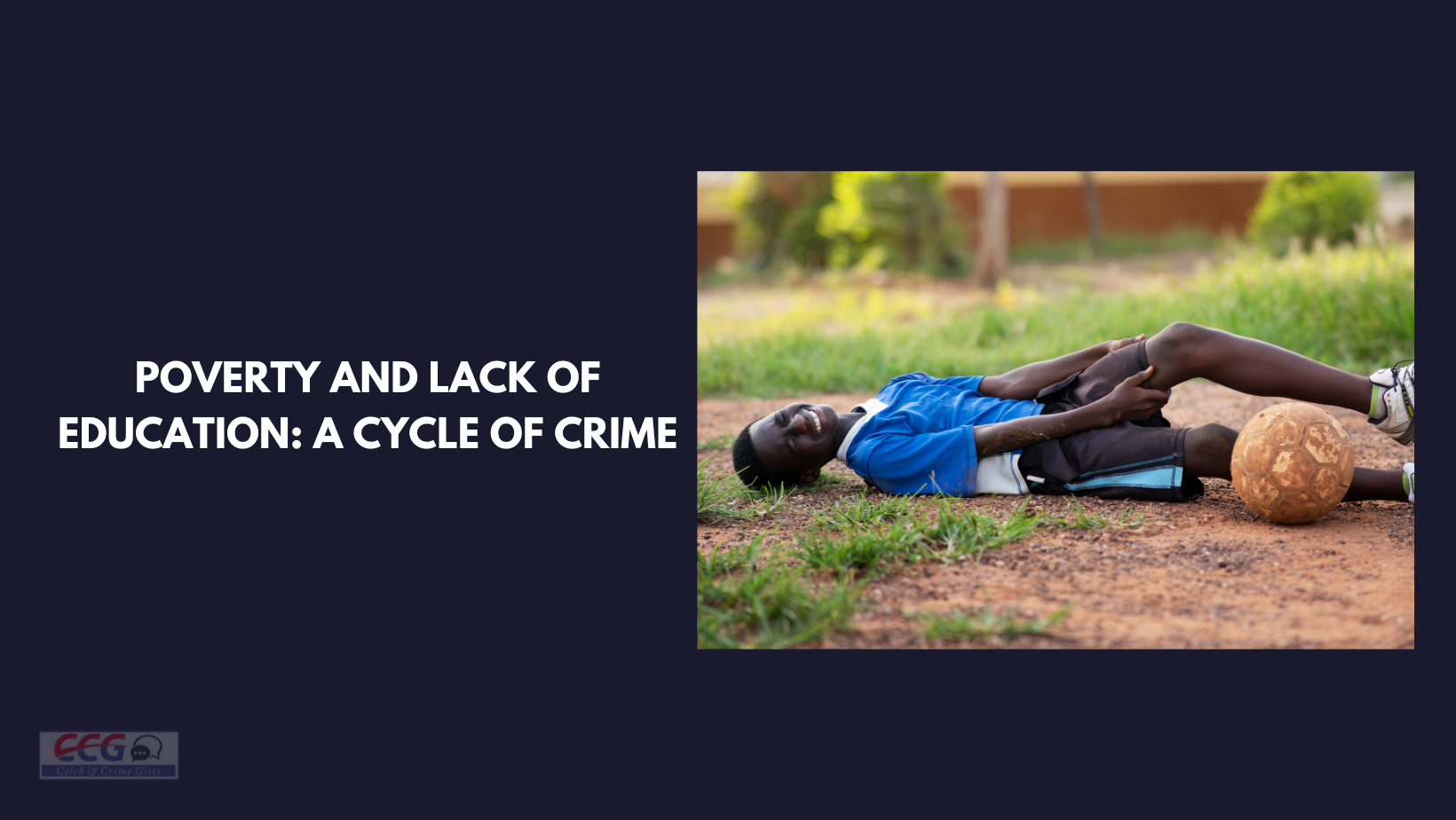Poverty and Lack of Education: A Cycle of Crime’ Poverty and lack of education are two of the most significant issues that many people face, especially in developing countries. Unfortunately, these two problems are closely linked, and they often result in a cycle of crime. In this article, we will discuss how poverty and lack of education can lead to criminal behaviour and how we can break this vicious cycle.
The Relationship between Poverty and Crime
Poverty is a significant factor that contributes to criminal behaviour. People who live in poverty often face numerous challenges, such as a lack of access to basic needs like food, clothing, and shelter. They also experience social exclusion, which can lead to feelings of hopelessness and frustration.
When individuals do not have access to basic needs and opportunities, they may turn to crime as a way to survive. They may resort to stealing, robbery, or drug trafficking to make ends meet. Moreover, poverty can lead to a lack of education, which further perpetuates the cycle of crime.
ALSO READ: Investing in Education Programs for At-Risk Youth
The Relationship between Lack of Education and Crime
Education is a vital factor in preventing crime. It equips individuals with skills and knowledge that are necessary for personal and societal growth. It also teaches people values, such as respect for the law and the rights of others.
On the other hand, a lack of education can lead to criminal behaviour. When individuals do not have access to education, they are more likely to engage in illegal activities. Lack of education can result in limited job opportunities and lower income, which can further increase the likelihood of criminal behaviour.
Breaking the Cycle of Crime
Breaking the cycle of crime requires a multi-faceted approach. We need to address both poverty and lack of education simultaneously to tackle this issue effectively. Here are some solutions that can help:
-
Education
Education is a key solution to reducing crime. Governments need to invest in education and make it accessible to everyone, regardless of their socioeconomic status. They can do this by providing scholarships, grants, and other forms of financial assistance to those who cannot afford to pay for education.
Moreover, education should be made relevant and practical, equipping people with skills that are in demand in the job market. Vocational training programs can also help people acquire skills that can enable them to earn a living and avoid turning to crime.
-
Poverty Reduction
Governments and other organizations should work to reduce poverty by providing basic needs such as food, clothing, and shelter. This can be achieved through various programs such as social welfare, employment, and community development initiatives.
Moreover, we need to address the root causes of poverty, such as inequality and lack of access to opportunities. This requires long-term solutions such as economic reforms, job creation, and investment in infrastructure.
-
Mentoring and Counseling
Mentoring and counselling can also help break the cycle of crime. People who have been involved in criminal behaviour need guidance and support to reintegrate into society. Mentors and counsellors can provide emotional and psychological support and help individuals develop positive attitudes and behaviours.
Conclusion
Poverty and lack of education are significant issues that contribute to the cycle of crime. By addressing these issues simultaneously, we can break this vicious cycle and create a safer and more prosperous society. Investing in education, reducing poverty, and providing mentoring and counselling are some of the key solutions that can help us achieve this goal.
READ MORE: Supporting Community Education Initiatives for Crime Prevention



